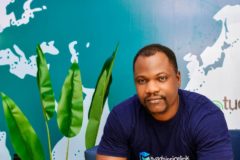On the back of the Digital Explorers programme, female data scientists and analysts in Nigeria now have a chance to grow their talent in Lithuania, one of the fastest-growing European ICT markets.
The world isn’t running out of tech companies, there’s a new startup now and then solving a new or recurring problem and founders eager to change the game. However, the world is running out of tech talent.
Not everyone sees it yet because when people think of tech talent, they often first think of coding. There is a general sentiment that says, “everyone is coding these days,” and this may be true. Coding has been called the most important skill of the future. However, there are two problems with this premise. One is that many tech skills require little or no coding ability, such as data analytics.
On the other hand, when people think of coding, they often first think of developers or designers. But there are other skills like data science that are not your typical coding job but equally as relevant.
Take Nigeria, for instance. It has the third-highest number of software developers in Africa (>83,000), and they have proven to be one of Nigeria’s major exports. With companies like Andela accelerating tech talent development and the fiercely competitive nature of the tech industry, Nigerian developers have become highly sought after locally and globally. Conglomerates like Facebook, Microsoft and Apple have been the biggest recruiters of Nigerian tech talent in recent years.
Data science on the flip side is an equally ubiquitous skill with relevance across different sectors in and out of tech – financial services, power, health services, public governance, to name a few. Although data science didn’t quite have the popularity of software development in the past, especially among young people, Google search trends show that this is changing.
Yet, as is the case with the wider tech industry, there is a wide gap between the number of women and men who are data scientists or analysts, and as such, the opportunities available to both vary.
Organizations like Data Science Nigeria, Data Lab, Hamoye and Utiva are making efforts to reverse this narrative by providing adequate training to people interested in data analytics, artificial intelligence and other less popular skills. With Digital Explorers, the goal is the same but the path is different. The organization tries to bridge the tech talent gap by providing talented Nigerian ICT specialists with training and employment opportunities in Lithuania, one of the world’s fastest-growing ICT markets.
The first cohort of the Digital Explorers programme funded by the EU launched in 2019, selecting 15 out of 1,400 tech talents and placing them in companies such as Ruptela, Telesoftas, SynoInt, NRD Systems, Beyond Analysis, iTo, and TransUnion.
With Cohort 2, the programme tries to bridge the tech gender gap and has successfully facilitated placements and legal mobility for 11 female data analysts/scientists in Lithuanian companies, namely Revel Systems, Metasite, Eleving, Monetha, Exacaster, Katalista Ventures and SynoInt.
Upon completion of the programme, participants will be supported to get employment opportunities with Nigerian companies. Interested companies can however sign up to know when they complete the programme so they don’t miss out on the international experience and skills that these talents will have gained.
According to Adaeze Sokan, the Acting Executive Director at Ventures Platform Foundation says, “The decision to focus on data analysts and scientists is fueled by the need to bridge the gender gap and contribute to the growing global demand of tech talents across different industries.”
To learn more about the Digital Explorers programme, please visit the Digital Explorers website and sign up for access to their talent pipeline. You can also contact blossom@venturesplatform.com for additional information.





















